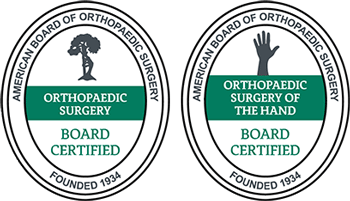What are the 5 Most Important Questions to Ask a Surgeon before Surgery

Millions of Americans undergo surgery every year, some are well informed while others are not. All surgeries come with benefits and risks that every patient should consider before agreeing to the procedure. Whether it is your first-time undergoing surgery, or you have done it before, you should always ask questions.
What is the surgery being recommended?
It is essential to understand its entirety with the recommended surgery. Most particularly if it is elective surgery (an operation you choose to have done), rather than emergency surgery. Your healthcare provider should cover the surgical procedure, such as the steps involved, and provide you with examples. If you do not understand the procedure, make sure you let the doctor know and request further explanations.
Ask your healthcare provider where you can find printed material about your condition. Many healthcare providers have this information in their offices.
Are there alternatives to this procedure? Why is the surgery needed?
Surgery may not always be the only solution available. In some cases, medication, or nonsurgical treatments, such as lifestyle changes, maybe as helpful in improving a condition as surgery. Ask your healthcare provider to specifically explain why this procedure is being recommended for you.
Sometimes “watchful waiting” is indicated, this means that your healthcare provider will monitor your condition over time to observe changes and the progression of a disease/condition. Although your doctor may still determine the need for surgery, it is possible to postpone it if your condition improves or stabilizes.
If you decide, after weighing the benefits and risks of the surgery, not to have the operation, know what will happen with your condition. You need to know whether the condition will worsen or if there is a possibility that it may resolve itself.
What are the benefits and risks of the procedure?
Before going through with surgery, you want to make sure the good will outweigh the bad. You should also ask how long the benefits typically last. Realistically, some benefits last a short time and require a second operation eventually. However, other outcomes end up lasting a lifetime.
Also, ask your healthcare provider to outline the possible complications, such as infection and bleeding, and possible side effects that could follow the procedure. Complications and side effects cannot always be predicted, but they can still occur. Knowing them will allow you to weigh them against the benefits so that you can make an educated decision. Furthermore, it is important to understand when you should notify your healthcare provider or seek immediate medical attention for complications.
What can you expect during recovery?
As much as you would like to return to your day-to-day life quickly, doing so could potentially result in serious complications. Ask your healthcare provider what to expect in the first few days following surgery, as well as in the weeks and months that follow. It is important to know how long you will be hospitalized, what limitations will be placed on you, and if there are special supplies or equipment you will need when discharged.
You should also ask about the typical length of time it takes for a full recovery to resume work and your everyday activities. Knowing and understanding all these factors can allow you to prepare your home and your family to provide you with the best recovery possible.
What are the costs of the procedure?
This question is not necessarily for your healthcare provider, but it is just as significant as the rest. Make sure you are aware of what the surgery will cost and what type of insurance coverage you hold. Although your health care provider is highly unlikely to have your coverage information, it is possible to get a surgery cost estimate based on their knowledge.
To learn about what your insurance or health plan will cover, the health care provider’s office might be able to provide help. If they cannot help you or you are still unsure about it, you could always call your health insurance company. Here are some costs that may be included, and you can ask about:
- The surgeon’s fee for surgery
- Hospital fees (if you need hospitalization) or ambulatory surgical center fees (for outpatient services). Check with the hospital’s business office about these rates. Your healthcare provider or surgeon should be able to give you an approximate idea of how long you will be in the hospital.
- Separate billing for other services. You will also be billed separately for the professional services of others who might be involved in your care, such as the assisting surgeon, anesthesiologist, and other medical consultants.
Before surgery, be certain of what portion of the costs you will be responsible for. If your anticipated costs present a problem, discuss other financial solutions with your healthcare provider before the surgery.
Conclusion
Your head may be spinning but, speaking up and asking the right questions will not only help improve the whole process, but it can let you make the most educated choice. Additionally, asking another healthcare provider or surgeon for a second opinion is an important step in making sure that this procedure is the best choice for you. Do not be embarrassed or afraid to go search for and receive a second opinion if the surgery is not based on some sort of emergency.
Lastly, try to go into your appointment with the healthcare provider as prepared as possible. Consider writing your questions down as you think of them, so you do not forget what to ask while there. Some people find helpful taking notes of the doctor’s answers to your questions. If you are not comfortable taking notes, you can ask someone to come in and do it for you. You could also request for your healthcare provider to write instructions down for you.
Keep in mind that a well-informed patient tends to be more satisfied with the outcome or results of a procedure.

























